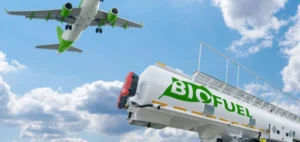The average gasoline price in the United States stood at $3.06 per gallon ahead of the Thanksgiving weekend, just two cents higher than the previous year. When adjusted for inflation, this marks the lowest real price for this period since 2020, when the pandemic had suppressed fuel demand and travel.
According to the American Automobile Association (AAA), about 81.8 million people are expected to travel at least 50 miles over the holiday period, 1.6 million more than in 2024. Of these, over 73 million are projected to drive. This comes as retail gasoline prices have fallen by roughly 12 cents since the end of summer, mainly due to declining crude oil prices and seasonal factors.
Crude oil price drop drives pump relief
Brent crude averaged $63.94 per barrel through November 24, its lowest monthly average in real terms since December 2020. This decline has directly impacted pump prices, with crude accounting for around half of the final retail price. The end of the summer season, typically marked by higher fuel demand and specific regulatory requirements for gasoline blends, also contributed to the downward pressure.
Regional price differences remain significant. On the West Coast, the average retail price reached $4.07 per gallon on November 24, a 5% increase year-on-year. The region faces major logistical constraints, higher state taxes, and strict environmental specifications, particularly in California. The recent closure of the Phillips 66 refinery in Wilmington, near Los Angeles, further tightened local supply, leading to increased gasoline imports.
Significant regional price disparities
In the Rocky Mountains, where infrastructure is also limited, the average retail price reached $2.87 per gallon, up 2% from last year. By contrast, the Gulf Coast, which hosts over half of the nation’s refining capacity, continues to show the lowest prices at $2.64 per gallon, unchanged from 2024.
On the East Coast, which has the highest gasoline demand among all five regions, the average price declined slightly to $2.99 per gallon, down 1%. In the Midwest, consumers paid an average of $2.86 per gallon, a level similar to last year.
Price trends remain closely linked to crude oil fluctuations, local logistical constraints, and seasonal demand, offering little short-term visibility for fuel distributors and transport operators.






















